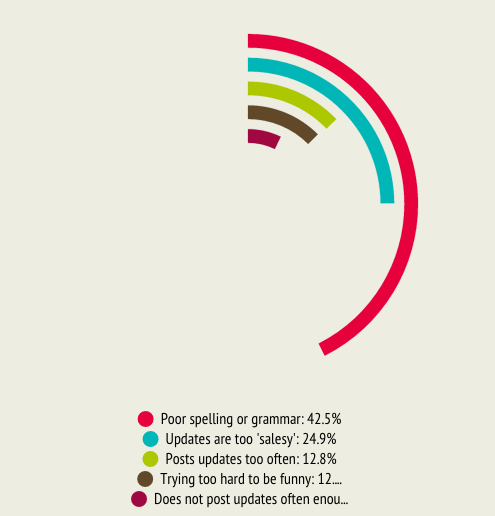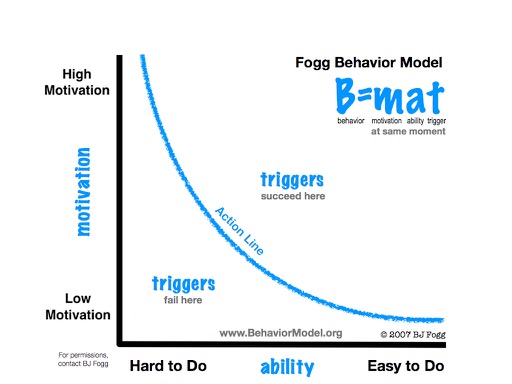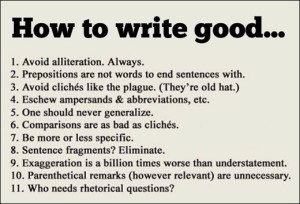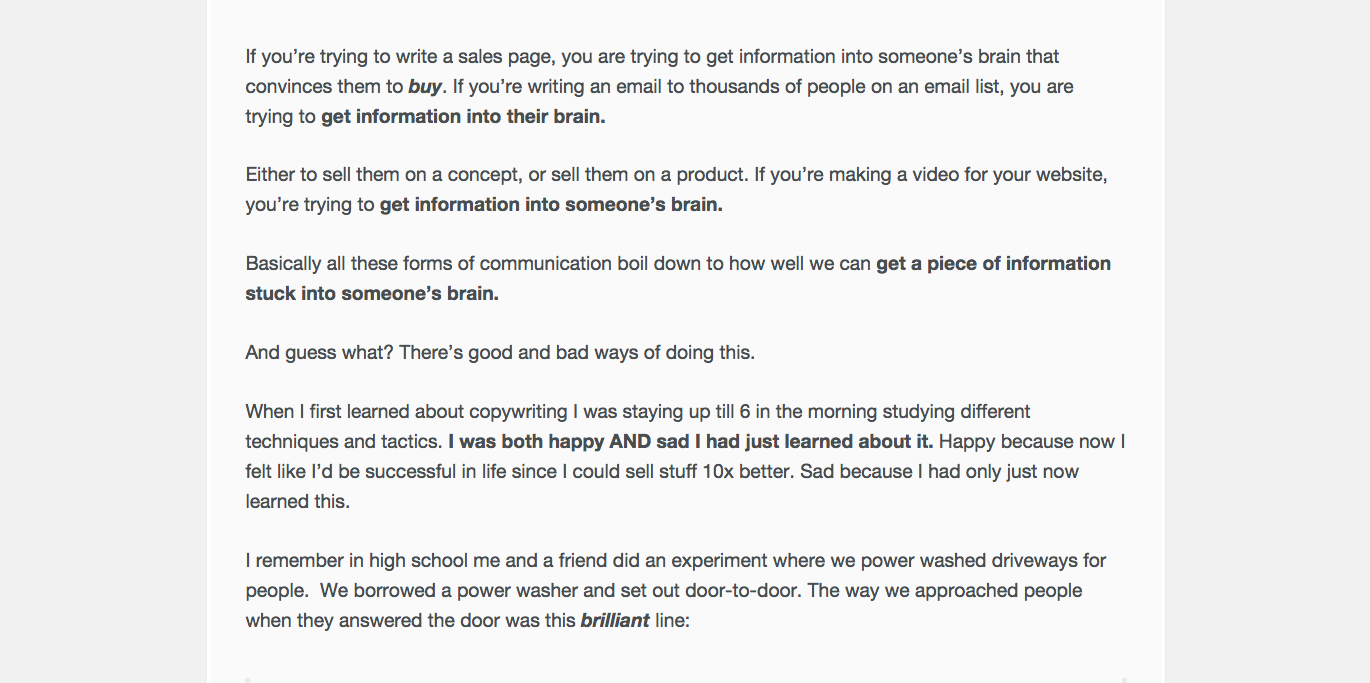Most articles will tell you that poor grammar can kill sales. While not as important in blog posts as in sales copy, grammatical errors can dissolve credibility, possibly resulting in fewer sales.
But what does the actual data say?
On a high level, it seems to make sense. And while spelling mistakes haven’t been heavily researched in relation to revenue, optimization, or growth, there is a small amount of research that suggests spelling mistakes impact credibility in negative ways. Then there are some business experts that directly relate spelling mistakes to lost revenue.
Table of contents
Why is it important to be detail oriented?
A while back when I signed up for Loop11, I noticed this:
Granted, the mistake was after I had already signed up, and it was really a minor error. But it was such a small thing—would be easy to fix—and it made us rethink the credibility of the site.
Of course, we all make mistakes. HubSpot listed 11 high profile spelling mistakes in this blog post, including their own:
And I’m well aware there are typos in CXL articles:
Mistakes happen. No one is perfect. And if you don’t have a spelling mistake here and there you’re probably not putting out enough content.
Spelling errors and trust: what the research says
Grammarly recently wrote in HBR about a study they conducted showing the professional dangers of bad grammar.
In their research, they reviewed 100 LinkedIn profiles of native English-speakers in the consumer packaged goods industry. Each professional had worked for no more than three employers over the first 10 years of their career. Half were promoted to director level or above within those 10 years, and the other half were not. Here’s what they found:
- Professionals who failed to progress to a director-level position within the first 10 years of their careers made 2.5 times as many grammar mistakes as their director-level colleagues.
- Fewer grammar errors correlate with more promotions. The study found that professionals with one to four promotions over their 10-year careers made 45% more grammar errors than those with six to nine promotions in the same time frame.
- Fewer grammar errors correlate with frequent job changes. Those who remained at the same company for more than 10 years made 20% more grammar mistakes than those who held six jobs in the same period.
Granted this is correlative data based on a small sample size, by no means representative of the professional world at large. Still, interesting findings.
In the dating world, Colour Works found similar insights. The company did a study of 1700 online daters and found that 43% of users consider bad grammar decidedly unattractive and 35% think good grammar is appealing.
Finally, in the social media realm, it seems spelling errors are one of the largest mistakes a brand can make. A London-based digital communications agency surveyed 1,003 U.K. web users, and found that close to half of the overall respondents—42.5 percent—would be most influenced by spelling or grammar blunders.
Anecdotally, too, it just seems to me that no one would commend bad grammar. At best, your users might not notice it.
One of the many factors of credibility
BJ Fogg has said that web credibility is about making your website in such a way that it comes across as trustworthy and knowledgeable. Your website is often the first point of contact for the customers, responsible for first impressions and of course sources of revenue.
Fogg says there are 4 types of credibility:
- Presumed credibility—general assumptions (e.g. a brand we’ve heard of is more credible, unknown brand less)
- Reputed credibility—third party reference (e.g. your wife said it’s good or your friends said service X sucks)
- Surface credibility—what we find on simple inspection (e.g. the website looks quality or “this seems confusing”)
- Earned credibility—personal experience (e.g. friendly customer service or text full of typos and factual errors)
Typos and other grammatical errors are an example of earned credibility. They are either immediately recognized and turn off readers, or they are subtle and slowly damage credibility throughout copy.
First impressions Matter; typos affect them
Usability.gov wrote an article outlining credibility factors, and one of their main points was avoiding poor grammar. They mentioned that most credibility factors were judged quickly, based on first impressions. As they put it, “the first credibility cues are perceived very quickly.”
Of course, different audiences respond differently, even in relation to credibility cues. For example, they found that younger respondents (age < 27.9 years) were harsher on sites that had typos or broken links.
We’ve already written about the importance of first impressions. Even though most first impressions are design-based, typos aren’t helping your credibility upon first inspection. ImpactBND actually put it really well:
“In other words, there’s no denying that first impressions matter. If your content is plagued by poor grammar, it’s likely that people will think twice about the quality of your products or services.
By presenting readers with sub par content, you are putting your business at risk of losing valuable word-of-mouth marketing. Or even worse, you’ll be subject to negative word-of-mouth attention.”
Do spelling errors cost companies…millions?
So there have been loose negative correlations between bad grammar and professional success, dating, and social media brand perception. All of that is interesting, but if it doesn’t affect the bottom line, does it really matter?
According to BBC, one entrepreneur has said that poor spelling is costing the UK millions of pounds in lost revenue for internet businesses.
The article doesn’t release any concrete data, so it’s hard to believe the figures they spout. But Charles Duncombe, the entrepreneur quoted in the article, says an analysis of website figures shows a single spelling mistake can cut online sales in half.
Why? Because, according to Duncombe, “when you sell or communicate on the internet, 99% of the time it is done by the written word.”
And as he says, “spelling is important to the credibility of a website…When there are underlying concerns about fraud and safety, then getting the basics right is essential.”
He acknowledged, however, that some parts of the internet, such as Facebook or blogs, are less susceptible to this sort of scrutiny – which makes intuitive sense. If you’re about to drop your credit card information, trusting a website is much more important.
TightsPlease.co.uk also found spelling errors decreased their conversions. They noticed that on the tights category page, they had misspelled the word “Tights” — the misspelling was “Tihgts” — and they noticed that was causing the page to leak money. Once fixed, conversions jumped by 80 percent.
While they didn’t do a controlled experiment, it was an easy enough fix that produced noticeable results. They chocked it up to the same category of errors as out of stock items, wrong dates, and other detail mess ups.
Or maybe it doesn’t matter that much at all
Apart from the spurious correlations and lack of figures from the statements, bad grammar is just one indicator of credibility among many. In addition, behavior isn’t solely driven by credibility.
BJ Fogg’s behavior model states that behavior is the product of motivation, ability, and triggers. So if it’s easy to do and the motivation is high enough, bad grammar in low doses is unlikely to cause major effects.
Then, there’s the possibility that your audience connects with bad grammar. Not necessarily sloppy spelling errors, mind you, but casual, slang-filled language.
An article on Entrepreneur says, “Break the rules. It’s OK. You’re not writing for your high school English teacher. Present your copy in a casual but professional way.” They say you can break some rules, like using:
- Contractions;
- Dangling prepositions;
- Slang words;
- Sentence fragments;
- One-sentence paragraphs.
For example, I like Neville Medhora’s writing style, and I’m sure the rest of his audience does as well. It’s not perfect and polished—rather, it’s casual, filled with slang, and fun.
But it works because he connects with his audience in the same way they speak/write:
Here, I think you need to achieve a balance. I don’t know many audiences that will applaud sloppiness (though they may judge it less harshly), but if you do your conversion research and find your audience connects with an informal tone, no need to follow AP style.
Read Below The Fold, though talking about social media marketing, gets it right when they say grammar is just one of many factors contributing to your success:
“The biggest goal for grammar and spelling in social media should be consistency. If a company has a guide to style that contains rules about the spelling and capitalization of brand-specific terms, there’s no reason for its social media team not to have a copy. By keeping posts as consistent as resources will allow, brands can encourage trust and credibility with their followers.
Countless factors other than spelling and grammar contribute to your social media presence.”
Five easy fixes to catch grammar mistakes
Struggling with detail-orientation? We all are. Here are some ways you can hit ‘publish’ without incurring the wrath of the grammar police:
1. Read it backwards
Since our brain fills in gaps based on the context, it helps to break that context to see things as they are.
As ImpactBND put it, “By reading your writing backwards you disrupt the natural flow of things, and find yourself forced to read word by word. This approach forces you to comprehend each word individually, which makes it easier to identify misspelled words and grammatical errors”
2. Bring in a fresh pair of eyes
This is, of course, the value in having a good editor. But if you’re the editor, or you don’t have one, or whatever the case, you can always get a friend or a coworker to read your copy. We try to have our blog posts reviewed by another content team member before publishing.
3. Read it aloud
This is pretty classic advice when it comes to editing. Not only will you catch grammar errors, you’ll also write more like you talk (a good thing). The end result is that your writing will be better overall, as well as error-free.
As ImpactBND said, “Some errors are more easily heard. One of the most effective proofreading techniques you can employ is reading your writing aloud, as it forces you to listen.”
4. Sleep on it
Though this is tough to do, or even impossible if you’ve got a deadline, revisiting your copy later helps you see it with a fresh pair of eyes.
When I write articles like this, I tend to write the whole thing at one time, spilling out errors and pretty crappy prose. Then, I edit it the next day or just at a later time. It helps me see the article in a new way and catch things my fatigued eyes would have missed otherwise.
5. Use Software like Grammarly
Spell check isn’t, or at least shouldn’t be, the last line of defense. But if you download something like Grammarly, you can catch grammar errors all over the internet, whether you’re writing in WordPress or posting a LinkedIn updated.
Conclusion
Correct spelling is one of many factors that impact the credibility of a website. Broken grammar and incorrect spelling certainly make you seem less credible, but to what degree that impacts your credibility, no one really knows.
For one thing, the context seems to matter a lot. It’s more forgivable in blog posts, but unacceptable on your homepage, product pages and other more static pages. People have estimated spelling errors to be causing millions of dollars/pounds in lost profits. While the figures quoted above are, to me, quite unbelievable and should be verified, being a little detail-oriented and catching these mistakes seems to be a no brainer.
Also, spelling errors are one of those things I don’t think you need to test. Put it in the JFDI (just do it) bucket, and move along with other high-impact areas to test.













I’ve had lots of people try to rationalize away bad grammar as something that won’t make a difference with their audience. That might be true in general, but it can affect even a small segment of your audience. And I don’t think you will ever GAIN value with things like typos, etc. So yes, just fix it. There’s almost no cost.
Another effect of typos, misspellings and some kinds of poor grammar is that it can raise a fraud flag with uncertain customers, much the way that those are the first indicators of bogus emails. Making sure your copy is clean is right there with making sure your site renders properly in all browsers used by your audience.
Now I’m wondering how many typos I have in this comment!
I agree with 100% Tom. Since it’s so easy to fix, you should fix it to maximize conversion rates.
I use Grammarly to make sure I don’t make any typos. I don’t want any typos if I can help it and want it keep it to a minimum. And let’s be honest, it doesn’t look good when you see a site with lots of spelling errors, it looks quite unprofessional if you ask me. So the key is to always make sure there are no spelling errors, and poor grammar, because this reflects on your site too.
Thanks for the comments. I just started using Grammarly, and I really like it.
-Alex
I adore this article and the research supporting the importance of good grammar and punctuation.
Essentially I’d say all lost revenue experienced as a result of grammatical errors should be directly invested into library cards and/or Kindles for the offenders.
Anecdotally, nothing turns me off faster than happening upon an error. I could make a business out of correcting popular memes being shared out there which have a great thought presented with mistakes.
Great article, as usual. Do I get a prize for pointing out a misspelling in the second sentence? :-)
Congratulations! We must have planted that misspelling there on purpose ;-)
Thanks! And my prize is?
Speaking of grammatical errors: It should be “fewer sales,” not “less sales.”
Ahhh good eye! What we should have done with this article is have like 12 grammatical errors and give a prize to whomever finds them all.
Thanks,
Alex
Great idea for a future article!
I see a lot of errors in webinar graphics. Online marketers are in a hurry to produce all the slides for their upcoming webinar and they make mistakes.
Once I came across an error I made on a home page. And that error was there a long time. Can you imagine — a home page?
One reason the increase for sale’s due to fixing grammar error’s could be because of the fact that the search engine’s are not recognizing the word on the page if it’s misspelled. For example the part above talk’s about an 80% increase in sale’s and conversion’s because of the misspelled word “tight” being fixed.
This word can now be recognized by the search engine’s now because it’s correctly spelled. Nice piece.
“Chocked it up” or “chalked it up”? :-)
Hmm. Maybe there ARE 12 errors to be found :-)